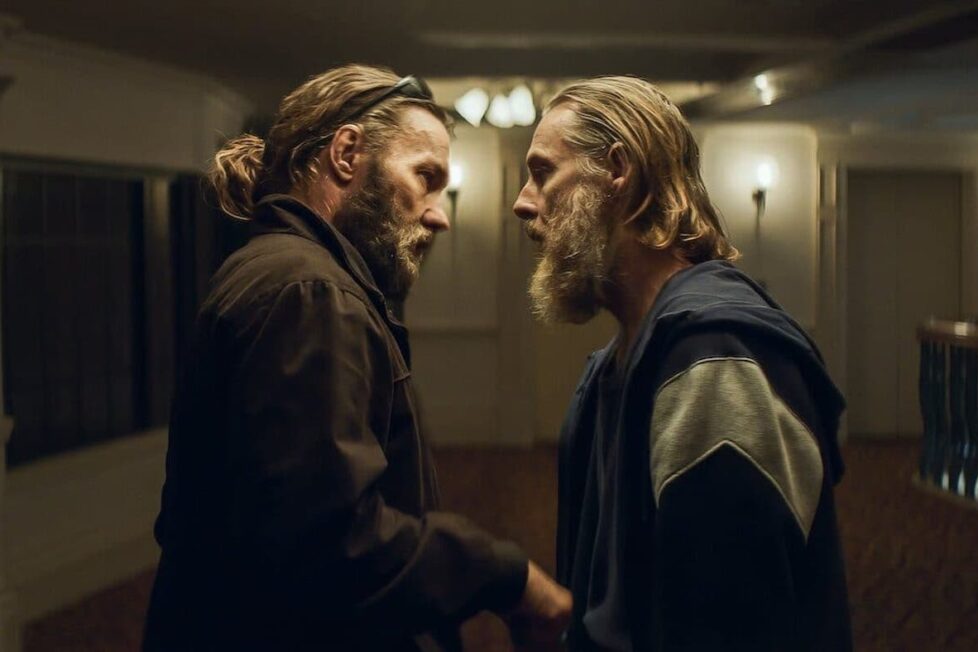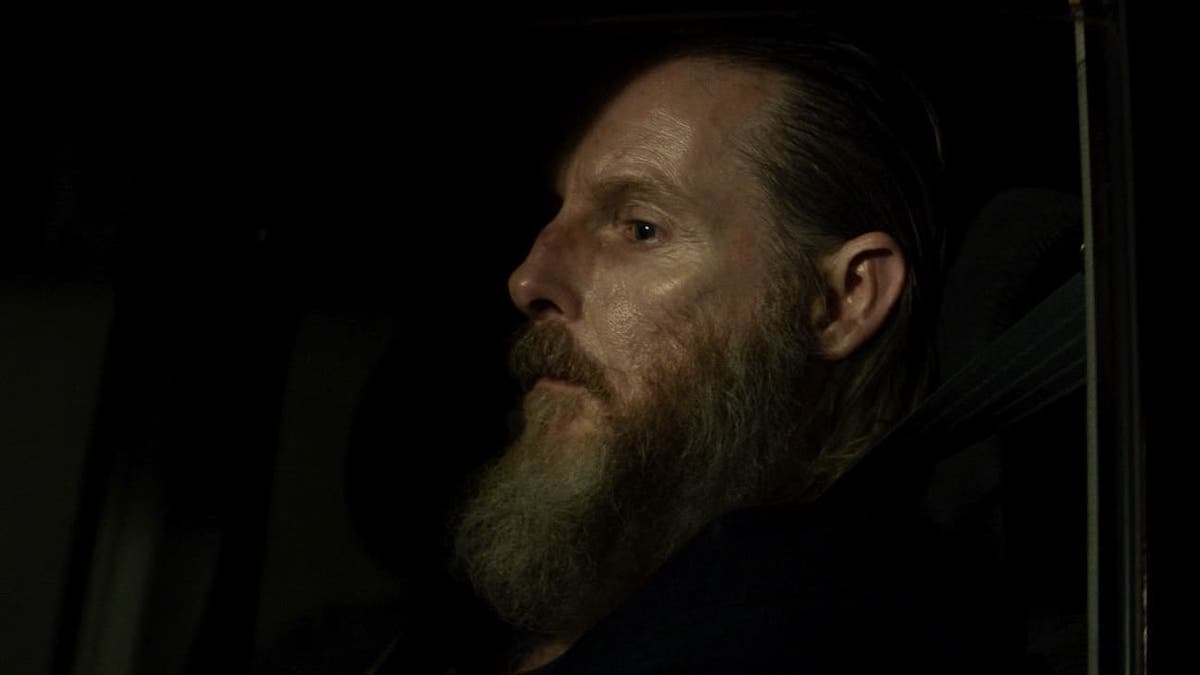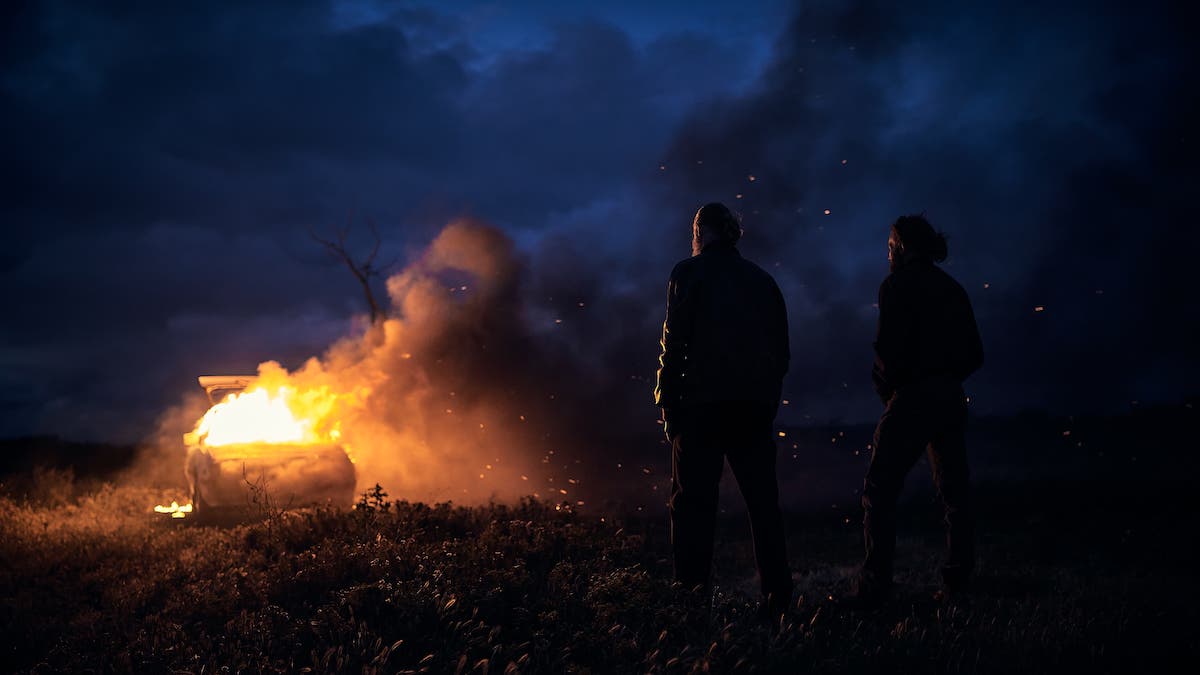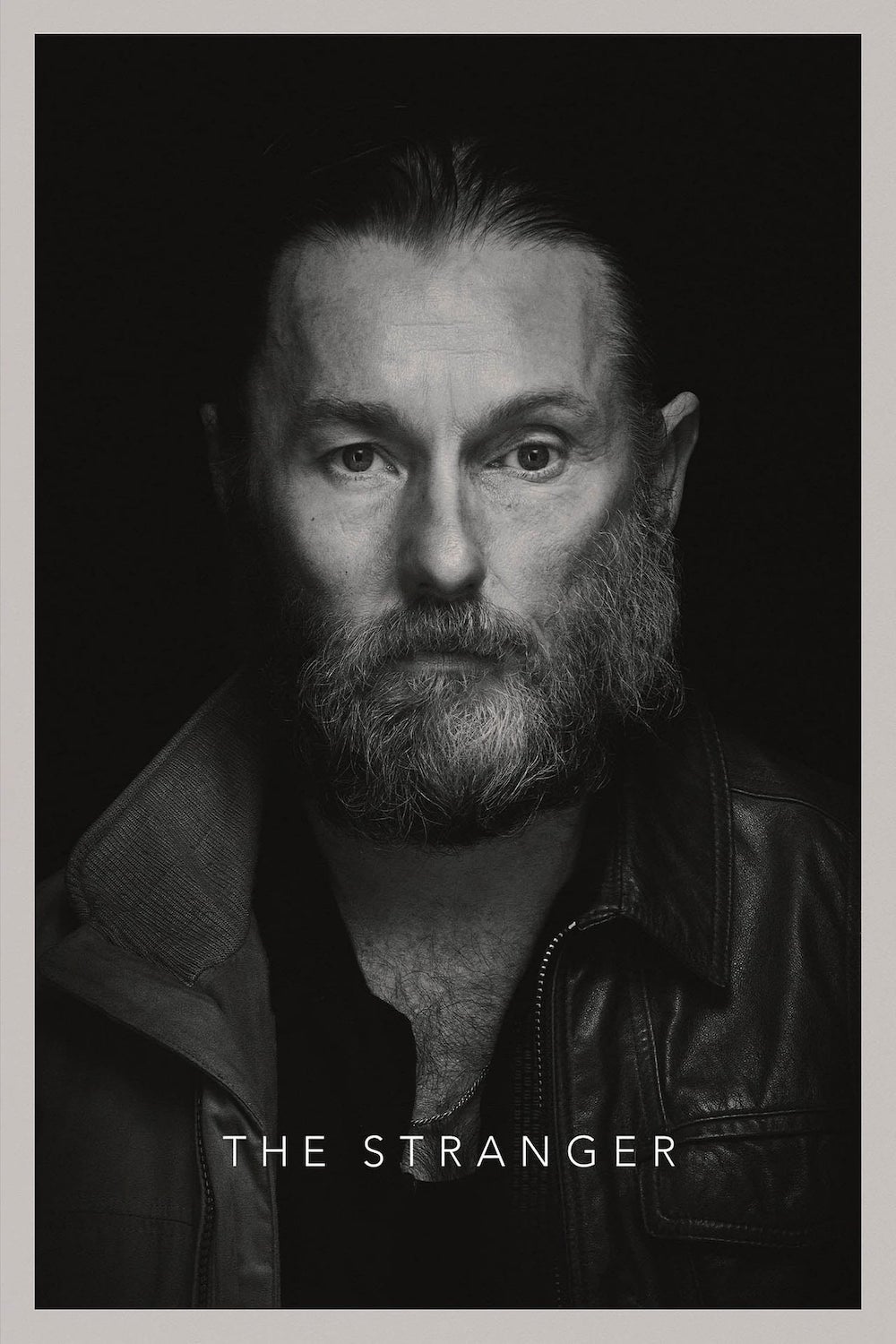THE STRANGER (2022)
An Australian undercover police officer strikes up a friendship with a suspected child murderer

An Australian undercover police officer strikes up a friendship with a suspected child murderer


SPOILERS IMMEDIATELY FOLLOW.
Any review of Thomas M. Wright’s outstandingly moody and intense new detective thriller must begin with a spoiler warning, because if you go into this movie without any knowledge of it, the revelation that Mark Frame (Joel Edgerton) isn’t an underworld minion offering work to Henry Teague (Sean Harris), but an undercover cop trying to convict him of murdering a child years earlier, it might come as a surprise.
Unfortunately, discussing the film without that spoiler is almost impossible; fortunately, most people seeing it will probably have picked up in advance on the premise, which is based on a real case. Although it’s not overtly acknowledged in the film.
Australia, circa 2010. Frame and Teague strike up a conversation on a long-distance bus; the latter is down on his luck, and soon after their trip Frame is helping him financially. But this is only a preliminary to the bigger step Frame needs to take: posing as a low-level member of a large criminal organisation, he introduces Teague to his “bosses”, who offer the older man a job on the condition he’s completely honest with them about his past. They don’t care what he’s done, they repeatedly say, but he must tell them everything so they can deal with any potential repercussions.
Together, Frame and Teague do several jobs for the “organisation”, which are implicitly related to smuggling, though the details are left deliberately vague for Teague because thinking too analytically about his new employers is the last thing they want him to do. It’s unimportant to the film, as the real thrust of the narrative is the developing relationship between the two men and the slightly more conventional procedural spliced between that, as a team of detectives gradually uncover Teague’s background and debate how to achieve their ultimate goal: a confession to the murder, which Teague will believe is merely full disclosure to his understanding paymasters.

At this point, some readers might expect a review to discuss the bond which develops between Frame and Teague, but a large part of the considerable power of Wright’s second film—he previously directed and co-wrote the award-winning Acute Misfortune (2018)—is that no bond does develop, at least from Frame’s side. Teague certainly comes to value his new “friend”, and in one of the movie’s most striking scenes even makes a clumsy pass at him, but the connection is one-sided. Far from starting to empathise with the man he spends so much time with, Frame finds the forced closeness harrowing. Indeed, one of the movie’s few resorts to cliché comes in the form of Frame’s own son (Cormac Wright), who inevitably brings to mind the victim of the earlier murder, although Wright does not overplay the linkage.
The story is a strong one, but it’s the performances (substantially aided by the photography) that really make The Stranger (directed by an actor) so compelling. The Edgerton and Harris characters together, one feels, would be completely watchable even if they were just two regular blokes chatting on a bus to Western Australia.
Harris is exactly right for this role, which calls for a manner he does so well. His Teague is wary and secretive, vulnerable, even slightly innocent of the ways of the world. Or is he much smarter and more duplicitous than he appears? Touches like his repeated references to his probably non-existent “missus” and the old-fashioned language of his voicemail promise that he will “endeavour to call you back” all add to the character’s strange menace, and in a film where most dialogue is delivered slowly, a scene where he finally becomes animated—discussing the details of the child murder—is shocking merely for that. An earlier scene where Frame visits Teague’s nearly-bare home (adorned only by a recently-acquired caged bird) recalls one of the most chilling passages in Zodiac (2007).

While Teague comes across as a somewhat passive man, his weakness tempered by a hint of buried malice, Edgerton’s Frame conveys more strength, but he’s subdued rather than assertive and his emotional erosion by the case and Teague’s awful history is completely plausible. And Frame, like Teague, is nervous too, as oth are, in their different ways, afraid of being found out.
Other roles are all much smaller, but consistently well-handled, with Jada Alberts, Steve Mouzakis and Alan Dukes (all playing police colleagues of Frame) among the stand-outs. Cinematographer Sam Chiplin favours dark, often brown and mostly interior, camera work that adds to the atmosphere of concealed guilt and buried horrors. Oliver Coates’s score, which is distant and intense for much of the film despite a slightly misjudged move toward tragedy near the end, also contributes to this too, as does Wright’s skilful use of dreams and time shifts.
Harris comes close to dominating the film with a career-best performance, but The Stranger ends with an unexpected and thought-provoking scene more focused on Edgerton that further opens up themes it has been pushing at all along. Secrecy is soul-destroying (everybody in the movie is lying almost all the time, to the extent that at least earlier on you can never be quite sure who is a cop and who is a real criminal), it seems to be saying, and even the good people in the world are eventually half-poisoned by proximity to the likes of Henry Teague.
Unflinchingly bleak but not melodramatically so, The Stranger is both an absorbing tale of detection and a first-rate psychological drama that must rank among the movies of the year.
AUSTRALIA | 2022 | 117 MINUTES | 2.39:1 | COLOUR | ENGLISH


director: Thomas M. Wright.
writer: Thomas M. Wright (based on ‘The Sting: The Undercover Operation That Caught Daniel Morcombe’s Killer’ by Kate Kyriacou.
starring: Joel Edgerton, Sean Harris, Jada Alberts, Cormac Wright, Steve Mouzakis, Matthew Sunderland, Fletcher Humphrys & Ewen Leslie.
